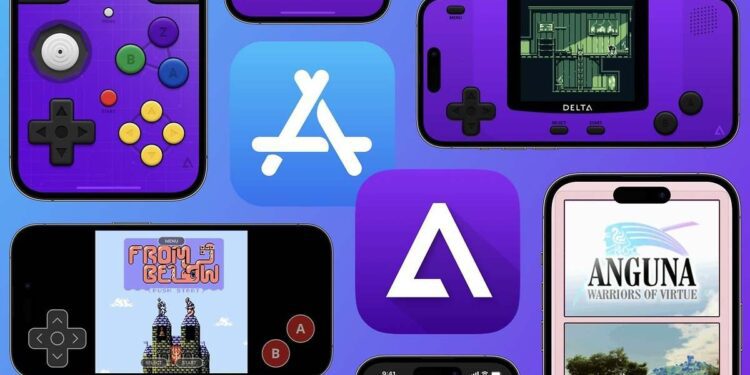These are tumultuous times for Apple. In just a few weeks, the changes brought about by the new European Digital Markets Act (DMA) have forced the company to approve the existence of new app stores, which have been heavily criticized and have led to legal battles over their commissions on developers and other companies, including disputes with other giants like EPIC or Spotify.
The good news is that this competition has led to more options for users, and we now have the new independent app store: AltStore PAL. And it has come on strong, with an emulator of old games that is causing a sensation.
We’ll tell you how you can download it and enjoy it.
A look at AltStore PAL and Delta, its star emulator
AltStore PAL emerges at a key moment, taking advantage of the new regulations of the Digital Markets Act that allow iOS device users to install third-party apps without Apple’s traditional restrictions.
This legal move has facilitated the integration of AltStore PAL on devices running iOS 17.4 in countries of the European Union, such as Spain, offering a viable and secure alternative to the official App Store.
Play as if you had a Game Boy on your iPhone
One of the biggest attractions of AltStore PAL is Delta, an emulator that has captured the attention of retro video game enthusiasts. Delta allows you to play classic titles from consoles like NES, SNES, Nintendo 64, Game Boy, Game Boy Advance, and Nintendo DS directly on an iPhone or iPad.
How to download Delta on your iPhone
The process to install AltStore PAL and start enjoying Delta is relatively simple, although it requires some specific steps. Users must visit the AltStore PAL website and complete a minimum annual subscription of 1.50 euros, intended to cover the fee that Apple imposes for the installation of alternative app stores.
Once subscribed, users can download Delta for free, although some additional features of other apps, like the Clip clipboard manager, may require an additional subscription on Patreon.
The AltStore installation process is not immediate and requires navigating through various permissions in the device settings, reflecting Apple’s additional precautions to ensure that users are aware of potential risks.
Once done, the experience is truly enjoyable. We can choose which game we want to emulate, load its ROMs, and start playing.
It is worth mentioning that this same week Apple had also given the green light to emulators in its own AppStore, although the arrival had come controversially as they had to remove the first one because it did not comply with the company’s rules.
These changes not only challenge the established status quo by giants like Apple but also raise important questions about the future of software distribution and user autonomy. Will this trend towards greater openness continue, or will we see a counterattack from tech giants to maintain their control?


